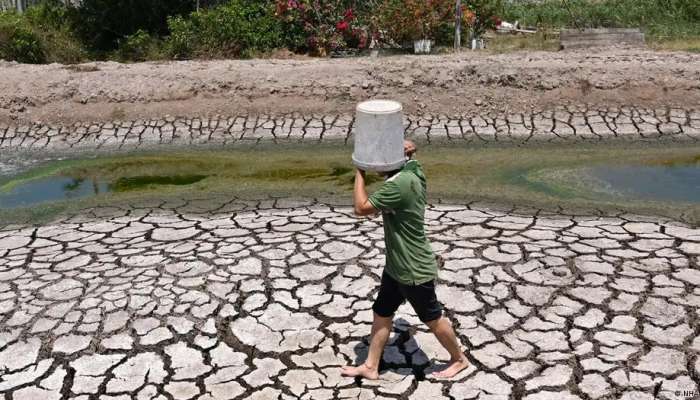
Baku: Forking out for the rising costs of climate change has been a contentious issue for years. But as the climate continues to heat up, leading to ever more unpredictable and extreme weather events, it is an issue of growing importance.
Against that backdrop, thousands of government negotiators, researchers and civil society members are gathering in the German city of Bonn for the next two weeks. There, they will lay the groundwork for the COP29 climate conference in Baku, Azerbaijan, at the end of the year.
Among the thorniest questions on the table are: Which developed nations should pay? How much money should come from government coffers and how much from private businesses? And how can countries be transparent about where the money is going?
"The questions are so complex and there are so many countries involved, the two weeks in November aren't enough," said Petter Lyden, Head of International Climate Policy at the NGO Germanwatch. "A conference like the one in Bonn to prepare is crucial."
From billions to trillions
In 2009, richer countries decided to provide US $100 billion (€92 billion) annually by 2020 to help developing nations mitigate and cope with the effects of the climate crisis. The OECD, which has been tracking progress towards the goal, found
the donors met the target for the first time in 2022 — two years later than agreed.
"While fully reaching the $100 billion annual goal is worth celebrating, the funding needed to come to grips with the climate crisis in the years ahead goes well beyond this amount," Melanie Robinson of the US-based World Resources Institute (WRI) said in a statement.
Indeed the signatories of the Paris Agreement pledged to come up with a new finance goal before 2025. And the pressure to up the target is growing.
According to a 2021 study
by the WRI, climate finance needs to rise to a whopping US $5 trillion per year by 2030. Especially as mega economies continue to burn fossil fuels — and heatwaves, rainstorms, droughts and wildfires linked to rising temperatures devastate more and more places around the world.
"This is not just a cost, it's an investment," said Joe Thwaites who works on international climate policy for the US non-profit Natural Resources Defense Council. "Even when the investment gets into the scale of trillions of dollars, we'll save multiple trillions of dollars in avoided damages."
Who is going to pay?
The question is where to get these sums from. Many of the developed countries who agreed to the 2009 goal are calling on other high-polluting economies to pull their weight. Top emitters like China and Saudi Arabia have so far been exempt because the UN counts them as developing nations.
"It's the time of taking action and we need more countries that take their fair share," Germany's Development Minister Svenja Schulze said at a Berlin climate conference in April. "All the ones who are big emitters, also the Gulf states, also China, we all need to do more."
Another sticking point is how to get private investments flowing into climate action.
Ultimately, Thwaites says, this is a responsibility that falls back on the state, be it via taxation, regulation or subsidies. Because it is governments, not the private sector, negotiating and enforcing the new finance goal.
"While it's important to be looking at what roles every part of the global economy should play in meeting the climate challenge, the commitments need to be things that governments can be held accountable for," he said.
Agreeing about transparency
One of the challenges in implementing the original finance goal is transparency.
Without clear reporting regulations on different types of funding, interpretations between donor countries and recipients often get muddled. In other words, money that was meant for a development project, for example, might be used to reduce emissions or to adapt to a warming world.
The uncertainty also makes it hard to follow which countries upheld their end of the bargain
"Developed countries can have a lot of room to play with how they present their climate finance statistics," said Tom Evans, Senior Policy Advisor at the climate think tank E3G. "That's led to a lot of distrust and skepticism about whether targets are being met."
The UN will complete a new transparency framework at the COP summit this year. Countries are expected to use unified reporting guidelines to show how they are contributing to the fight against climate change — and that includes finance statistics.
Paving the way in Bonn
Unlike the COP 29 in Baku, which will be attended by world leaders, the smaller conference in Bonn attracts expert negotiators from the different government delegations. They discuss technical details with less political scrutiny.
"Those technical pieces are really the key to a good deal," says Evans. "But the challenge of Bonn is always trying to see how far you can get towards the final deal without ever agreeing anything."
While the conference provides vital groundwork, high-ranking politicians must come in to make final decisions around contentious issues. And it is in Azerbaijan that they will have the chance to negotiate what to do with the building blocks laid down in Bonn.